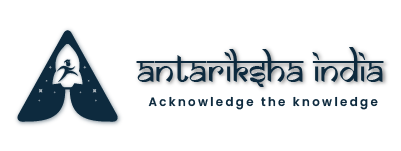- Empowering Ghanaian Learners: Critical ghana education news & Initiatives Fueling a Brighter Academic Future.
- Expanding Access to Quality Education
- Improving Infrastructure in Rural Schools
- Teacher Training and Professional Development
- Addressing Gender Inequality in Education
- Curriculum Reforms and Skills Development
- The Role of Technology in Education
- Strengthening Vocational and Technical Education
- Promoting Critical Thinking and Problem-Solving Skills
- Financing and Governance of Education
Empowering Ghanaian Learners: Critical ghana education news & Initiatives Fueling a Brighter Academic Future.
ghana education news is a crucial topic for the nation’s development, impacting the future workforce and societal progress. Recent reports and initiatives highlight both the challenges and opportunities within the educational system. From access inequities to curriculum reforms, understanding the current landscape is vital for stakeholders, including students, parents, teachers, and policymakers. This article provides a comprehensive overview of these developments, delving into the key areas shaping the future of education in Ghana and exploring the strategies employed to overcome existing hurdles, ultimately aiming for a more equitable and effective learning environment for all Ghanaian students.
Expanding Access to Quality Education
One of the most persistent challenges in Ghanaian education is ensuring equal access to quality learning opportunities for all children, regardless of their socioeconomic background or geographic location. Rural areas often face significant disadvantages due to limited infrastructure, insufficient teaching resources, and a shortage of qualified educators. Government initiatives, coupled with support from non-governmental organizations, are working to address these disparities. These efforts include constructing new schools, providing scholarships to students from disadvantaged backgrounds, and implementing teacher training programs focused on improving pedagogical skills.
| Greater Accra | 350,000 | 180,000 |
| Ashanti | 320,000 | 160,000 |
| Eastern | 280,000 | 140,000 |
| Northern | 220,000 | 90,000 |
Despite these improvements, significant gaps remain. Affordability continues to be a barrier for many families, especially those with multiple school-aged children. Furthermore, the quality of education delivered in rural schools often lags behind that of schools in urban centers, creating a cycle of disadvantage. Addressing these issues requires a multi-faceted approach that combines increased funding, improved infrastructure, and targeted interventions to support students and teachers in underserved communities.
Improving Infrastructure in Rural Schools
The lack of adequate infrastructure in many rural Ghanaian schools presents a major obstacle to effective learning. Many schools lack basic amenities such as classrooms, libraries, laboratories, and even sanitation facilities. These deficiencies create an unconducive learning environment and negatively impact student attendance and performance. Recent government initiatives focus on addressing these infrastructural gaps through the construction of new school buildings and the rehabilitation of existing ones. While progress is being made, sustained investment and effective maintenance are crucial to ensure the long-term sustainability of these improvements. It is often a struggle to simply get materials to remote locations due to poor roads and limited transportation, exacerbating these challenges.
Teacher Training and Professional Development
The quality of education is directly linked to the quality of teachers. Investing in teacher training and professional development is therefore paramount. Many teachers in Ghana, particularly those in rural areas, lack adequate training and resources, hindering their ability to deliver effective instruction. Current efforts focus on providing teachers with ongoing professional development opportunities, including workshops, seminars, and mentoring programs. These programs aim to upgrade teachers’ pedagogical skills, enhance their subject matter knowledge, and equip them with the latest teaching methodologies. Furthermore, providing teachers with access to relevant teaching materials and technology is essential to improve the learning experience for students. The teacher training curriculum is also being revised and updated to reflect current educational trends and best practices.
Addressing Gender Inequality in Education
While significant progress has been made in promoting gender equality in education in Ghana, disparities still exist, particularly at the secondary and tertiary levels. Cultural norms and socioeconomic factors often contribute to girls dropping out of school prematurely, often due to early marriage, pregnancy, or household responsibilities. Efforts to address this issue include providing scholarships and financial assistance to girls, promoting positive role models, and raising awareness about the importance of girls’ education within communities. Creating a safe and supportive learning environment for girls is also crucial, addressing issues such as gender-based violence and harassment. Eliminating these barriers will empower girls to reach their full potential and contribute meaningfully to society.
Curriculum Reforms and Skills Development
Recognizing the need to prepare students for the demands of a rapidly changing global economy, Ghana’s education system is undergoing significant curriculum reforms. The focus is shifting from rote memorization to critical thinking, problem-solving, and creativity. The new curriculum emphasizes practical skills development, entrepreneurship, and the integration of technology into the learning process. This requires re-training teachers, updating learning materials, and investing in infrastructure to support these new approaches.
- Emphasis on STEM subjects (Science, Technology, Engineering, and Mathematics).
- Integration of vocational and technical training into the mainstream curriculum.
- Promotion of entrepreneurship education to foster innovation and job creation.
- Increased use of technology in teaching and learning.
The Role of Technology in Education
Technology has the potential to revolutionize education in Ghana, providing access to learning resources and opportunities that were previously unavailable. However, bridging the digital divide is a major challenge. Many schools lack access to computers, internet connectivity, and other essential technological infrastructure. Furthermore, teachers need to be trained in the effective use of technology to enhance their teaching and engage students. Government and private sector initiatives are working to address these challenges by providing schools with computers and internet access, developing digital learning materials, and offering teacher training programs focused on educational technology. The use of e-learning platforms and online resources can significantly expand access to quality education, particularly for students in remote areas.
Strengthening Vocational and Technical Education
Vocational and Technical Education and Training (TVET) is increasingly recognized as a critical pathway to employment and economic growth in Ghana. Traditionally, TVET has been undervalued and underfunded, leading to a shortage of skilled labor in key sectors. The government is making efforts to revamp the TVET system, investing in infrastructure, upgrading curriculum, and strengthening linkages between TVET institutions and industry. The goal is to provide students with the skills and knowledge they need to succeed in the job market and contribute to the country’s economic development. This includes creating apprenticeships and internship opportunities for TVET students, as well as promoting the establishment of TVET centers in underserved communities. A crucial element of success is ensuring that the skills taught in TVET institutions are aligned with the needs of employers.
Promoting Critical Thinking and Problem-Solving Skills
The emphasis on rote learning in the traditional Ghanaian education system has often stifled students’ ability to think critically and solve problems. The new curriculum seeks to address this by encouraging active learning, inquiry-based approaches, and project-based learning. These methodologies empower students to take ownership of their learning, develop critical thinking skills, and apply their knowledge to real-world challenges. Teachers are being trained to facilitate learning rather than simply lecturing, and to create a classroom environment that fosters curiosity, creativity, and collaboration. Assessment methods are also being revised to focus on evaluating students’ ability to apply their knowledge and solve problems, rather than simply memorizing facts. Developing these skills is essential to prepare students for the challenges of the 21st century.
Financing and Governance of Education
Sustainable financing and effective governance are essential for the long-term success of Ghana’s education system. The government allocates a significant portion of its budget to education, but additional funding is needed to address the numerous challenges facing the sector. Exploring alternative funding mechanisms, such as public-private partnerships and philanthropic contributions, can help supplement government funding. Strong governance structures are also crucial to ensure transparency, accountability, and effective resource allocation. This includes strengthening the capacity of the Ministry of Education, enhancing school management, and involving local communities in decision-making processes.
- Increased government investment in education.
- Exploring alternative funding mechanisms (public-private partnerships, philanthropy).
- Strengthening governance structures and accountability.
- Enhancing school management and community involvement.
Addressing challenges within the educational sector requires a collaborative effort from all stakeholders. Parents, teachers, policymakers, and the private sector all have a role to play in ensuring that every Ghanaian child has access to quality education. Continued investment, innovative reforms, and a commitment to equity and inclusion are essential to building a brighter future for Ghana, fueled by an educated and skilled workforce. Regular evaluations of programs and policies are also crucial to ensure their effectiveness and make necessary adjustments. A focus on data-driven decision-making will enable the government to allocate resources effectively and target interventions where they are most needed, ultimately transforming the landscape of ghana education news and developing the nation’s most valuable asset—its people.


